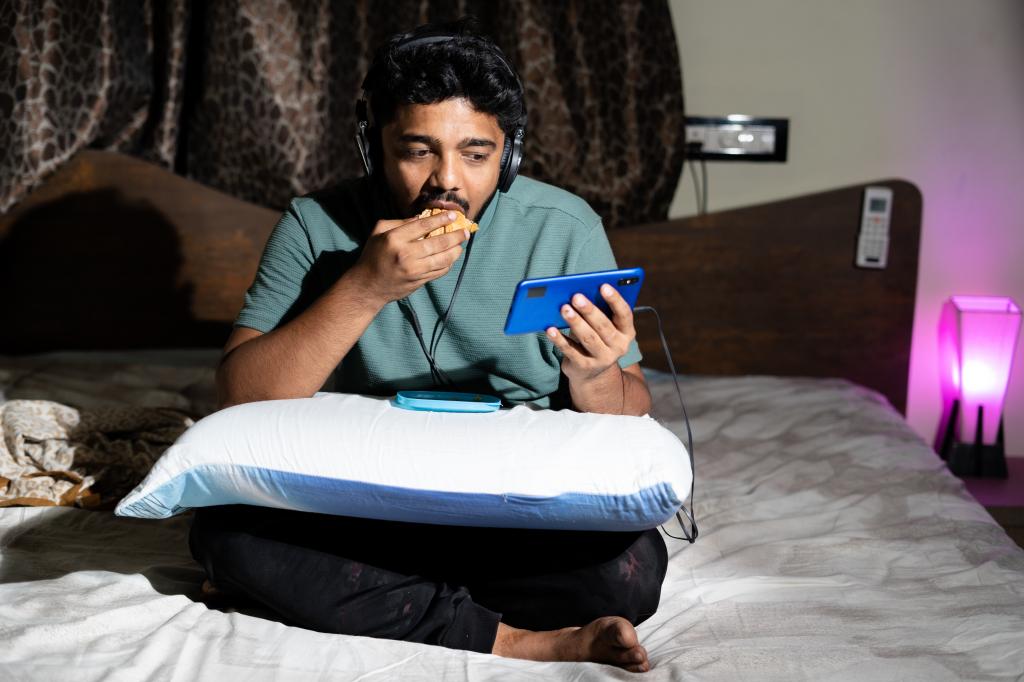An investigation into whether a good night’s sleep is the secret to a long and healthy life could have implications for people in India, who are the second-most sleep-deprived in the world*.
Researchers at the University of Leicester, in the United Kingdom, are investigating sleep disturbance’s impact on ageing and to see whether it is reversible, by looking at how it affects the chemical modification in our DNA.
In general, older people sleep less, wake up and go back to sleep more often, and spend less time in deep sleep or dreaming than younger people. At the same time, numerous studies have shown that disturbed sleep is associated with mortality among older adults. Even a single night of disturbed sleep increases gene expression in pathways associated with getting older.
However, the molecular basis linking sleep alteration and ageing is largely unclear. One of the clearest molecular markers for ageing is DNA methylation, the chemical marks attached to the DNA that change throughout animals’ lives and have been found to track closely with chronological age.
Project lead Professor Eamonn Mallon and his team in the Department of Genetics and Genome Biology at Leicester has shown that a DNA methylation based ‘epigenetic clock’ can faithfully predict ageing progression in the jewel wasp (Nasonia vitripennis), making these wasps an ideal insect model for testing if changes in DNA methylation is involved in the sleep-regulated ageing process.
Biological ageing can be seen as how long you live or your lifespan, but also as your quality of life and activity, known as healthspan. Working together with behavioural geneticists at the University of Leicester and Imperial College London, Professor Mallon’s team will be using the jewel wasp as a model to examine what impact lack of sleep has on both of these measures as well as on the epigenetic clock.
Like humans, the jewel wasp sleeps mainly at night. The scientists will be keeping these wasps awake at night and seeing how it affects their lifespan, healthspan and epigenetic clock. If it does, it could suggest a direct link between sleeping and ageing, as well as raising the possibility that epigenetics plays a role in how we get older biologically.
Professor Mallon said: “We will be seeing how active the wasps are. As they age, you would expect them to be less active, a measure of healthspan and with sleep disturbance you would expect to see this happen quicker.
“If it does, then the next step would be to see if this is reversible, with the ultimate aim being could we help people get a better night sleep as they age and maybe even live longer.
“Epigenetic clocks are also a pretty good measure of age, but what people aren't 100% sure of is whether epigenetic age is causative of ageing or just an effect of ageing – a bit like molecular ‘wrinkles’.”
Ageing is a mechanistically complex process influenced by many environmental and genetic components that are difficult to investigate, particularly in humans. Previous research has been largely based on simple model invertebrate organisms, in particular fruitflies and nematodes, partly because their short lifespans allow scientists to observe ageing effects on shorter timescales. However, they do not possess DNA methylation, an important part of epigenetics and how humans age.
The jewel wasp has a typical lifespan of three weeks and has a functional methylation system making it an ideal system to investigate this aspect of ageing.
Professor Mallon said: “Our lab was the first to actually show that this process exists in insects. There are a lot of interventions out there aimed at tackling ageing, but the evidence for most of them is very slight. The wasp could really become a kind of early check – basically, a tiny version of us.”
The University of Leicester, which is placed 26th out of all UK universities in the 2024 Times Higher Education (THE) World University Rankings, enjoys strong links with India. In October 2023 it signed a Memorandum of Understanding with healthcare service provider, The Apollo Hospitals Group. The Memorandum will strengthen existing links with India and sets out a mutual desire to promote international cooperation and explore collaborative education and research programmes, particularly in the fields of healthcare management, healthcare and data science.
The University has limited availability for Master’s programmes with a January 2024 start, which can be undertaken by international students. To find out more visit the January 2024 postgraduate course page of the website.

 The study will be of interest to those living in India, which is the second-most sleep-deprived nation in the world, according to a 2019 study* conducted by the US firm Fitbit across 18 countries.
The study will be of interest to those living in India, which is the second-most sleep-deprived nation in the world, according to a 2019 study* conducted by the US firm Fitbit across 18 countries. 










.jpeg)




.jpeg)

.jpg)













